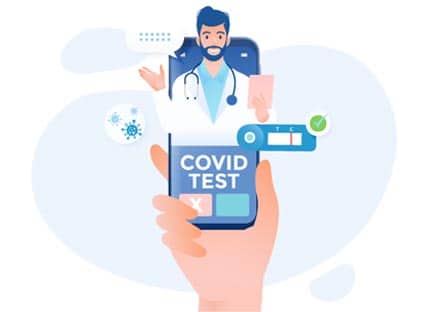Abdominal pain is one of the most common discomforts that people can experience. In some cases, abdominal pain can be a symptom of a serious illness, while in other cases, it can be simply a temporary discomfort. The location where the abdominal pain occurs and its characteristics, for example, if it is acute, chronic, or progressive, can be important clues to determine its possible causes. Among the most frequent are the following:
- Indigestion: It is perhaps one of the most common causes of abdominal pain. It occurs when stomach acid irritates the lining of the stomach and esophagus. The symptoms of indigestion include abdominal pain, heartburn, nausea, and vomiting.
- Gas: Gas is formed in the intestine when food is digested, and if it is not released correctly, it can cause abdominal pain, bloating, and flatulence.
- Constipation: It occurs when bowel movements are infrequent or difficult to pass. Symptoms of constipation include abdominal pain, bloating, nausea, and vomiting.
- Diarrhea: It occurs when food passes too quickly through the large intestine. Symptoms of diarrhea include abdominal pain, watery stools, and dehydration.
- Infections: Infections can also cause abdominal pain. These can be caused by bacteria, viruses, or parasites. Symptoms of infections include abdominal pain, fever, nausea, and vomiting.
If you tend to underestimate symptoms such as abdominal pain, it is important to be aware that it can also be caused by appendicitis, diverticulitis, intestinal obstruction, kidney stones, pancreatitis, spleen rupture, abdominal aortic aneurysm, heart attack, among many other health problems.
What to do when abdominal pain occurs?
When abdominal pain occurs, it is important to determine the cause in order to treat it properly. If the abdominal pain is mild and not accompanied by other serious symptoms, it may be possible to treat it at home with some simple home remedies. However, it is essential to pay attention to all the signals that our body emits.
When you feel abdominal pain, it is important to keep in mind the following recommendations:
- If the abdominal pain is mild, rest can help alleviate it. Sit or lie down in a comfortable position and relax.
- Drinking clear liquids such as water, tea or broth can help alleviate abdominal pain.
- Applying a hot or cold compress to the area of pain can help reduce or alleviate abdominal pain.
- Avoid foods that may irritate the stomach such as spicy, fried and greasy foods.
Remember that through mechanisms such as abdominal pain, our body lets us know that things are not right and that it may be time to consult with our doctor.
How to Treat Abdominal Pain?
The treatment of abdominal pain depends on the cause. If the abdominal pain is caused by a serious condition such as appendicitis or pancreatitis, immediate medical treatment may be necessary.
If the abdominal pain is caused by a less serious condition such as indigestion or gas, there are several treatments that can help alleviate the pain:
– Stomach acid medications such as antacids can help relieve indigestion and heartburn.
– Gas medications such as simethicone can help relieve gas and bloating.
– Constipation medications such as laxatives can help relieve constipation and associated abdominal pain.
– If the abdominal pain is caused by a bacterial infection, antibiotics may be prescribed to treat it.
As you can see, it is not easy to determine the cause of abdominal pain without the help of medical professionals. If you are experiencing abdominal pain, do not hesitate to schedule an appointment.
You may also be interested in: 4 Types of Abdominal Pain and How to Treat Them
How to Prevent Abdominal Pain?
Although abdominal pain cannot always be prevented, some simple actions can help prevent it from becoming a frequent discomfort. Take a look at the following tips and put them into practice:
- Eat healthy and balanced foods: A healthy and balanced diet will help prevent indigestion and other digestive problems.
- Stay hydrated: Drinking enough water can help prevent dehydration and constipation.
- Exercise regularly: Regular physical activity can help improve digestion and prevent constipation.
- Manage your stress levels: Stress can negatively affect digestion and cause various digestive issues.
If you have or have had abdominal pain, don’t get used to living with it. The specialists at Centro Médico Formé will help determine the underlying cause of your bothersome symptoms and recommend the appropriate treatment to regain your quality of life. Call 914-723-4900 or schedule an appointment.







